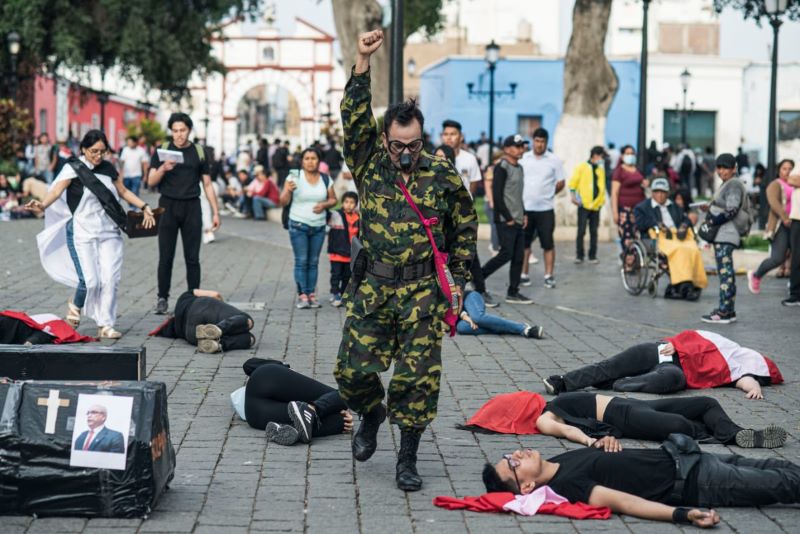Pedro Castillo’s attempted coup d’état caused confusion throughout the country for a couple of hours. His swift capture and subsequent imprisonment quickly made headlines in most of the national and international media. In the days that followed, however, it was noticeable that the hegemonic media group was trying to impose a bipolar look on the events. On one side were those who defended the rule of law and legality, and on the other were the coup plotters who had dared to undermine the longed-for “democracy” that had been achieved more than two decades ago. Voices that offered non-Manichean looks or that asked to consider the context of what had happened reached us via the international press and, in part, thanks to the position of other Latin American governments.
By Gerson Julcarima Alvarez – SER.PE News
We will probably never know exactly what would have led former President Pedro Castillo to take such a decision. However, a few weeks after the events, it is possible to clearly visualise that the losers of the 2021 election are now governing. It is enough to observe the composition of the ministerial cabinet, as well as the correlation of political forces that support President Dina Boluarte in Parliament. The parliamentary opposition of a few weeks ago is now clearly pro-government, and this will probably be confirmed when we see the details of the vote of confidence that Parliament will have to give to the ministerial cabinet. This would be unthinkable in any democracy with acceptable vital signs. What we are seeing here is the perversion of the democratic election mechanism. Let us then ask ourselves, would it make sense to have a say at the ballot box when the losers finally end up governing?
Those who, focusing only on the message of former president Castillo, were tearing their hair out over such an affront to democracy should be asked her what kind of system they were defending: were they in favour of that democracy with which 80% are dissatisfied or whose fundamental institutions have the highest levels of distrust in the region (see the figures of Latinobarómetro 2021 and IEP 17/12/2022). Already since the middle of Toledo’s government our minimal democracy (i.e., where there are only regular elections) was beginning to lose legitimacy as it was unable to move towards substantive democracy (minimally guaranteeing social rights). Recent polls have revealed that, paradoxically, 44% of citizens supported Castillo’s closure of Congress. And the fact that the current government uses police and military repression to crush criticism or social protest reveals that this is a legitimate government in formal terms, but illegitimate in social terms. In other words, it is worth asking her what kind of democracy are we willing to preserve or entrench?
Taking a look at recent history, I would say that the minimal post-Fujimori democracy never took hold among the great majorities. Only an intellectual, economic and social minority – concentrated in Lima – supported it to the extent that it was functional to the neoliberal economic model. The best proof of this is that presidents – like Dina Boluarte now – were and are only supported to the extent that they govern in favour of the model. In other words, our system of political representation (democracy) played and plays a subsidiary role to the (neoliberal) economic model, which clearly does not enjoy majority consensus – because it promotes an atrophied state and growing inequality. So much so that when even this mock democracy is no longer functional to the model, its legitimacy is sustained by helmets, boots and bullets; let us not forget that this is how neoliberal policies were imposed in the region and this is the only way they can remain in force in Latin America.
The original article can be found at the following link: https://www.noticiasser.pe/la-democracia-como-furgon-de-cola-del-neoliberalismo
Research Assistant at the University of Alberta – Canada and Associate Researcher at IEPA (Peru).










